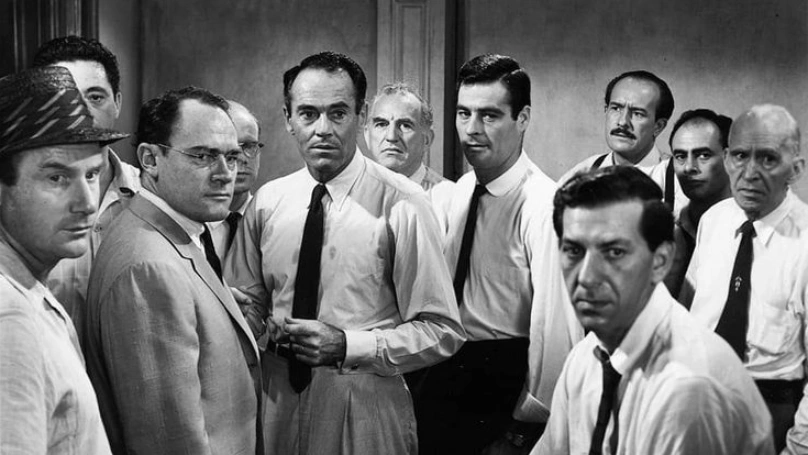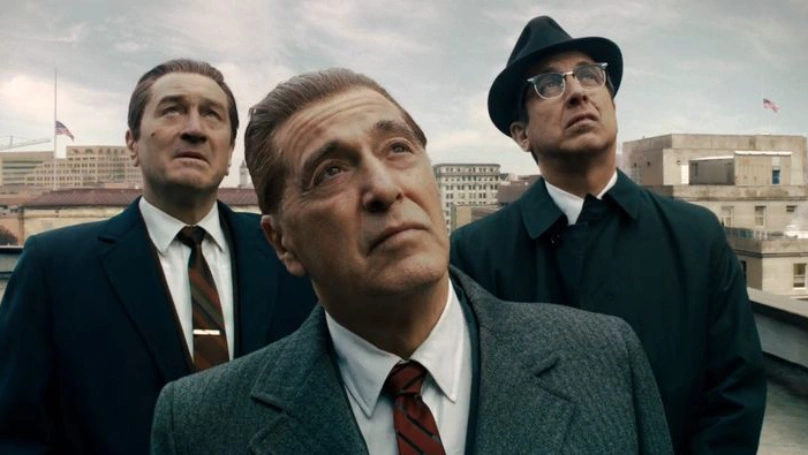To lead in a world where the definition of good leadership changes with every second that ticks by, there is only one place to look for insight: storytelling. The film becomes that one eye through which we visualize leaders and the turmoil they face or create within their teams. Movies about leadership do entertain, but more than that, they evolve critical attributes within an individual, such as resilience, empathy, and vision. This article will look at some of the best leadership movies.
The King’s Speech movie
Living in a world where communication is key, the clear ability of articulation can often determine how an individual affects others. “The King’s Speech” is a poignant portrayal of this very theme and is the 2010 release by Tom Hooper. This tells the incredible true-to-life story of King George VI and one of his major struggles with a debilitating speech impediment and offers valuable insight into the intricacies of communication, leadership, and personal growth. Apart from the thriller of a historical context, the film is a masterclass in having a look at how empathy, perseverance, and a strong support system lead to monumental breakthroughs in one’s life.
The core of “The King’s Speech” rests in the relationship that will take place between Prince Albert, Duke of York-who would become King George VI played by Colin Firth-and his speech therapist, Lionel Logue, played by Geoffrey Rush. When his brother Edward VIII abdicates, Albert is unexpectedly enthroned, taking the title of George VI. The job he never wanted, and was woefully unprepared for, faces the onset of World War II. A confident public image was essential; hence, his biggest enemy was his impedimentive speech.
The movie represented stress and anxiety connected with public speaking, especially about the leaders. The current research in the field of communications found that this was not just any issue of fluency; it included the ability of a speaker to connect with the audience. Albert’s frustration and self-doubting journey are the common cases of psychological barriers that each of us tries to overcome while communicating effectively in situations that involve high stakes.
Nowadays, there are many books on speaking and communication. For example, you can check the article 5 Effective Books for Improving Speaking Skills.
12 Angry Men
Directed by Sidney Lumet, the 1957 classic “12 Angry Men” is an in-depth investigation into American justice, the mechanics of group dynamics, and the subtleties of human nature. Remarkably set for the most part within the confines of the jury room, the film recounts an engrossing tale of twelve jurors entrusted with the duty of sealing the fate of a young boy accused of murder. What should be a straightforward conviction of guilt gets turned into an important dissection of bias, prejudice, and moral responsibility that will engage audiences in the deepest struggles of human judgment.
Arguably, one of the most striking aspects of “12 Angry Men” is its perfect on-screen conjuring of jury deliberation. The movie begins with the ominous weight of the verdict to be decided by the jurors; essentially, a finding of guilty will mean the death of the accused. As the jurors initially file into the room, an aura of conformity has most of its members prepared to dole out a verdict in a quick fashion. It is here that Juricant 8, played by Henry Fonda, opposes the majority vote and requests the group to reconsider. This is at that juncture of a critical moment in terms of the psychological phenomenon of groupthink or of the tendency of individuals to go along with a consensus to avoid conflict, versus critical thinking.
Groupthink might stifle creativity and accuracy in decision-making, as research by Janis (1972) suggests. The full dichotomy between Juror 8 and the rest in “12 Angry Men” catalyzes deeper reflection and starts a discussion on the importance of individual beliefs in a group setting. As the conscience of the jurors is awakened, there will be biases and preconceived opinions coming out to show how easily personal prejudices can affect the judgment.

Dunkirk
Christopher Nolan’s 2017 “Dunkirk” is not just another war movie; instead, it is a deep, profound exploration of resilience during one of the most critical moments of World War II. The film narrates the 1940 evacuation of Dunkirk, whereby the Allied soldiers were surrounded by German forces and were presented with the harrowing task of attempting to flee beaches in France. It’s Nolan inviting the viewer not to witness history but, through a certain narrative structure and impeccable crafting, to come close to the actual chaos and desperation of survival. Working at the heart of “Dunkirk” is the testimony of the human spirit and instinct for survival. The film tells three different stories on land, sea, and air, connected with the experience of evacuation. Each storyline- land, the soldiers on the beach; sea, the civilian boats; and air, the RAF pilots-allows the dimensions of survival during wartime to be further illustrated.
The Irishman: A Reflection on Time, Loyalty, and Regret
Martin Scorsese’s “Irishman,” released by Netflix in 2019, adds poignancy and reflectiveness to the gangster genre in ways that invite an audience into themes such as loyalty, aging, and what consequences come with life choices made in a world filled with violence. The film is a biographical narration of Frank Sheeran, the hitman whose life crossed paths with organized crime in post-war America and the unexplained disappearance of the labor union leader Jimmy Hoffa, and it’s based on a book called “I Heard You Paint Houses” by Charles Brandt. And with an all-star ensemble consisting of Robert De Niro, Al Pacino, and Joe Pesci, Scorsese fills his film with a sense of inevitability, beautifully capturing the passage of time and the weight of every decision made throughout a lifetime.
Perhaps the most striking quality of “The Irishman” is its relationship to time. Martin Scorsese uses all this new, innovative de-aging technology to have his actors play their characters at different stages in life. It’s not a stylistic trick alone; it makes real the fluidity of memory, the painful journey often through the choices of life. The movie leaps forward through decades to show how Frank’s loyalty to his mob family and his relationship with Hoffa culminate in profound regret.

Oppenheimer: The Man Behind the Bomb and the Shadows of Creation
Christopher Nolan’s ‘Oppenheimer,’ which debuted in 2023, is a remarkable cinematic exploration into the life of J. Robert Oppenheimer, the leading personality behind the Manhattan Project-as the architect of the atomic during World War II. It is a biographical thriller that takes stock of the protagonist’s place in history while reflecting on the moral ambiguities surrounding scientific advancement and the consequences of such a wielding of power; this is especially evident in the stellar performance by Cillian Murphy. The film truly indulges in an aspect of narrative multiplicity that courses all over in the depth of its theme, inviting readers to hard thoughts on highly intricate ethical problems and the personal tribulations engaged in for one of history’s most contentious figures.
A reigning theme in ‘Oppenheimer’ is that of balancing scientific ambition with moral responsibility. An intellectually brilliant and ardent physicist, Oppenheimer allows the ambition of the scientist in him, which is to probe into science’s unknown through curious inquiry. As the film first unfolds, it is those ambitions that metamorphose slowly into a moral dilemma. Oppenheimer’s obsessive pleading to assemble a ‘think tank’ of the best minds to develop the atomic bomb quickly becomes overshadowed by the terrible consequences of deploying it.
Conclusion
Leadership can be learned from anywhere and about anything. You can derive lessons from fictional leaders that can help you be better in the real world. Whether amidst battle, on the ball field, or in the courtroom, leaders across human history have shared certain lasting characteristics. They include empathy, adaptability, the ability to develop and maintain complex alliances, and resilience. By the same token, the literature and, more recently, movies have chronicled leadership stories that can sound a clarion call to us in our own personal and professional development. Whether through empathy, innovation, resilience, or the ability to inspire hope, these films remind us that leadership is not just about authority










